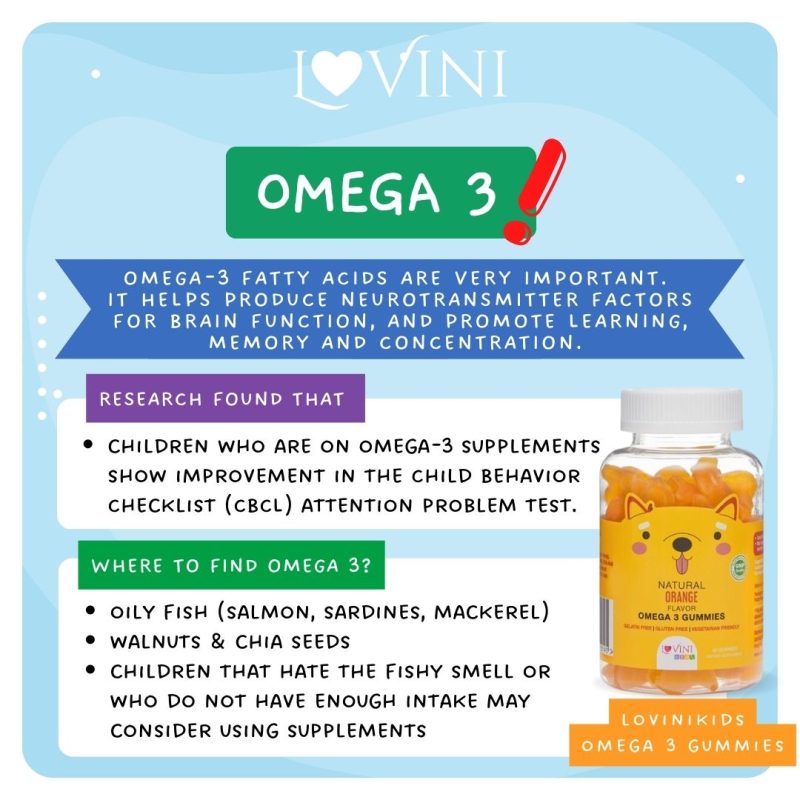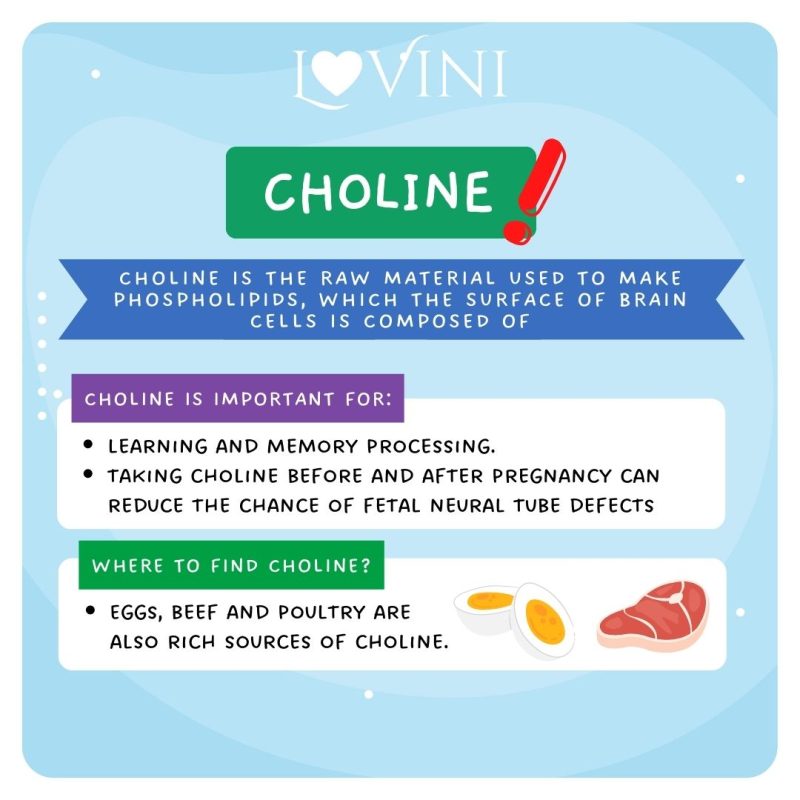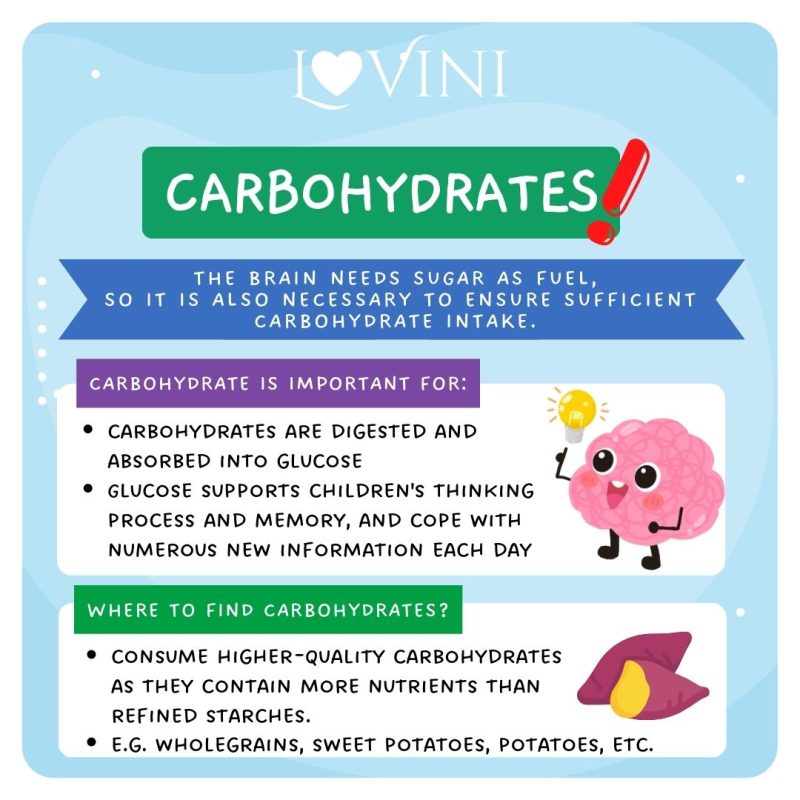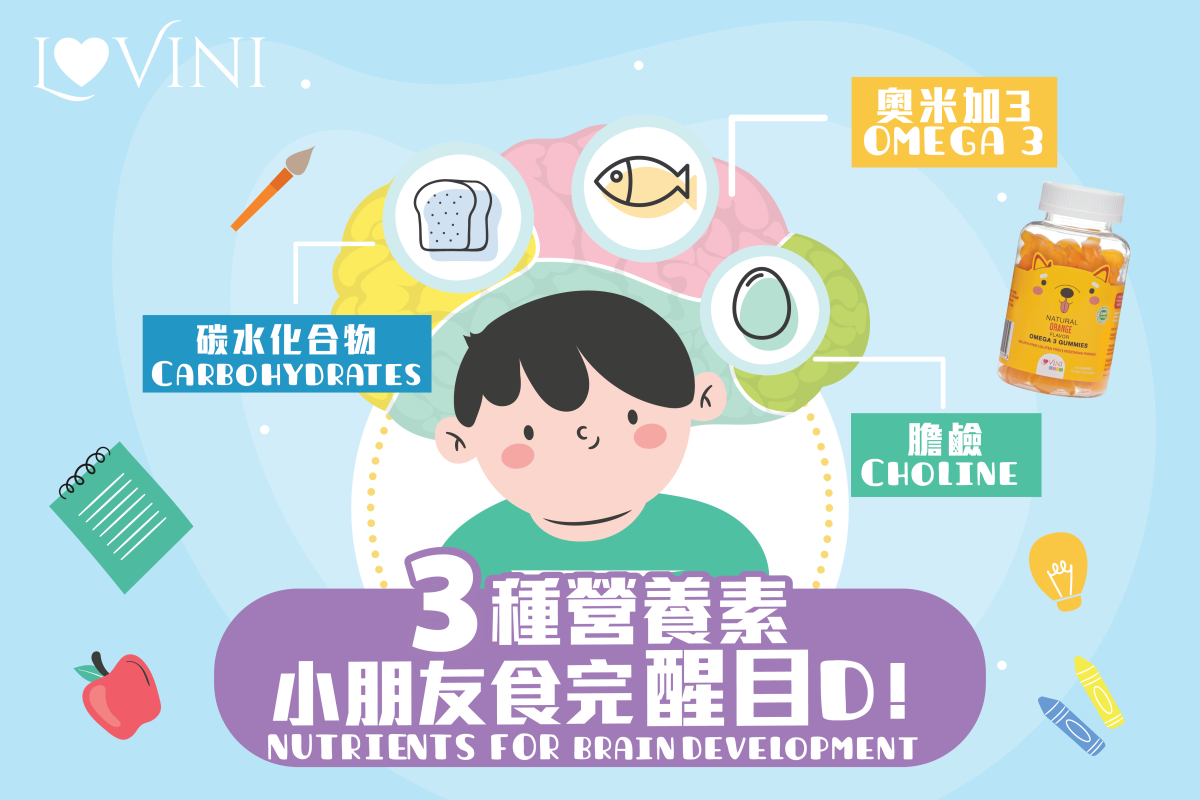Children’s eating habits are very crucial in relation to brain development! A balanced diet containing the 3 key nutrients are important for the brain to function properly. What types of nutrients do we need to help our brains function? Continue reading to learn more!
Omega-3
Our brain is mainly composed of fat, among which omega-3 fatty acids are very important. It can help produce neurotransmitter factors for brain function, and promote learning, memory and concentration. Studies have shown that children who are on omega-3 supplements show improvement in the Child Behavior Checklist (CBCL) attention problem test. Omega-3 is commonly found in oily fish (such as: salmon, sardines, mackerel) and also walnuts & chia seeds.

Choline
The surface of brain cells is composed of phospholipids. Choline is the raw material used to make phospholipids, which are important for learning and memory processing. Eggs, beef and poultry are also rich sources of choline.

Carbohydrates
The brain needs sugar as fuel, so it is also necessary to ensure sufficient carbohydrate intake. After digestion and absorption, it can be converted into glucose, supporting children’s thinking process and memory, and cope with numerous new information each day. It is recommended to consume higher-quality carbohydrates, such as wholegrains, sweet potatoes, potatoes, etc. Because they contain more nutrients than refined starches.

Lovini’s Recommendation
Lovinikids Omega 3 Gummies (60 gummies): Contains 235mg of Omega 3 per gummy, important for healthy brain ![]() and eyes
and eyes ![]() !
!
Price ![]() ►$260
►$260

Reference
- Northstone K, Joinson C, Emmett P, Ness A, Paus T. Are dietary patterns in childhood associated with IQ at 8 years of age? A population-based cohort study. J Epidemiol Community Health. 2012;66(7):624-628. doi:10.1136/jech.2010.111955
- Gómez-Pinilla F. Brain foods: the effects of nutrients on brain function. Nat Rev Neurosci. 2008;9(7):568-578. doi:10.1038/nrn2421
- Bos DJ, Oranje B, Veerhoek ES, et al. Reduced Symptoms of Inattention after Dietary Omega-3 Fatty Acid Supplementation in Boys with and without Attention Deficit/Hyperactivity Disorder. Neuropsychopharmacology. 2015;40(10):2298-2306. doi:10.1038/npp.2015.73


